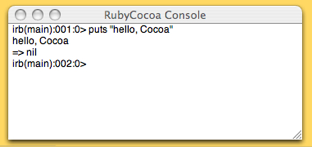Simple “Send Email from Ruby” method – Using Net::SMTP to talk to the local SMTP daemon directly to send mail. Not elegant, but a useful quick hack.
Helper to Display Rails Flashes – A helper method that formalizes and simplifies the displaying of certain flash variables in Rails views.
Rails and Vim – A script to open an entire Rails project in Vim (searches through for models, controllers, etc).
Using Ruby hashes as keyword arguments, with easy defaults – Make your life (and methods!) simpler by merging in a set of default options with the supplied ones.
Ruby daemon library – A useful Daemon module to simplify the creation of daemons in Ruby (the daemons gem may be better for this in the long run though). Read More


